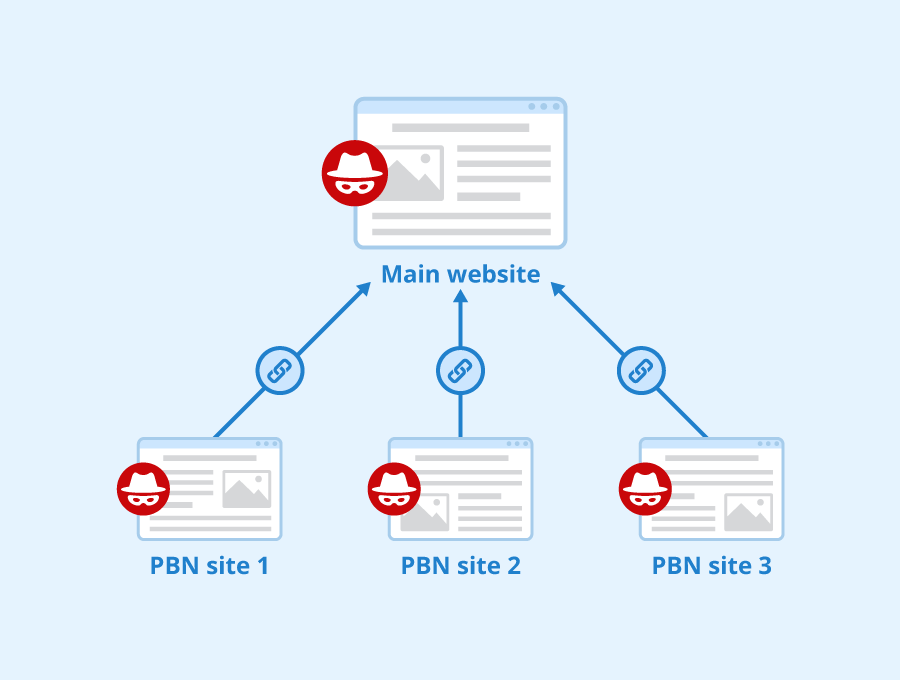Black Hat SEO Practices You Should Avoid
Search Engine Optimization is a widely-used and powerful digital marketing tool that many businesses around the world utilize. Why? SEO is basically the art of getting web pages ranked highly on search engine results pages. And why would anyone want to get ranked on Google and other search engines so badly? As of 2018, more than half of the global population has access to the internet. And it’s safe to say that most of these users access search engines every day. Black Hat SEO.

In fact, daily searches on Google alone amount to approximately 3.5 billion every day. This equates to about 1.2 trillion searches per year worldwide. If these numbers make any sense to you, then you can see the exposure your website can get if it gets ranked highly on search engine pages results.
However, you’re not the only business to want the same thing. Hundreds of thousands of companies in different industries utilize SEO in an attempt to increase their online exposure. Because of this, search engines like Google decided to take more serious precautions to ensure that their users get high-quality and relevant results.
In the past, webmasters can manipulate their Search Engine Results Page (SERP) ranking through the use of spamming and keyword-ridden content. But Google has changed their algorithm to recognize these spam activities. These days, such under-the-table activities can get a site penalized or even blacklisted. But, with so many SEO strategies out there, it can be sometimes hard to determine whether what you are doing is white hat or black hat. Let’s try to clear some things up.
What is Black Hat SEO?
Black Hat SEO is the term used for any sort of activity that aims to improve a site’s SEO through the use of sketchy and unethical techniques. There was a time when webmasters would fill their pages with keywords, with no regard for relevance, and still manage to rank on the first page of search results. This was when search engines started to change their algorithm to recognize relevance and quality in order to give their users better quality results.
What techniques are considered as Black Hat SEO?
A lot of SEO services will try to sell you services that promise fast and easy results by using black hat SEO. It’s essential you know the ones that can get your site in trouble.
Keyword stuffing

Stuffing keywords in every possible corner of a site are one of the most prevalent black hat SEO techniques out there. Keyword stuffing doesn’t usually make a lot of sense and is often just a bunch of keywords repeated across the article with no regard for information or even readability. This was once one of the easiest ways to get a site ranked high on search results pages, but these days, Google will actively punish your site for this kind of behavior.
PBN or Private Blog Networks

PBN’s are a variety of blogs owned by a private group with a purpose to get backlinks to a website that people want to rank highly on search engine page results. PBN’s can usually be filled with low-quality content.
However, this technique seems to be working currently. But either way, it’s still not an advisable thing to do. Search Engines usually don’t like methods like this, and it’s not a gamble you should take when you can pay for SEO Techniques that are legitimate and can work for a long time.
Backlinks Buying

Another rampant SEO scam in the market is the technique of buying backlinks for a site that people want to get ranked The links you will gain are never relevant, have poor quality, and won’t get you the traffic you need. In fact, it can even get you penalized by Google.
Conclusion
SEO is a complex and ever-changing digital marketing tool. Most of the time, it takes a lot of effort in following all the rules. Essentially we are always at the mercy of search engines and their algorithm. This is why following their guidelines is essential in practicing SEO techniques. To be safe, it’s always better to go the legitimate, albeit complex and time-consuming route.
Black Hat SEO Practices



